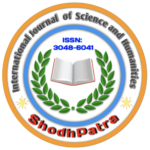| Article Title |
Colonialism and Its Impact on Indigenous Knowledge Systems in India: A Sociological Perspective |
| Author(s) | Prof. R. N. Tripathi. |
| Country | India |
| Abstract |
This paper examines the impact of colonialism on India's indigenous knowledge systems (IKS) from a sociological perspective. Indigenous knowledge in India, which includes traditional practices in agriculture, medicine, ecology, and social organisation, has always played a key role in community life and cultural identity. The arrival of British colonial rule resulted in a major rupture by forcing Western scientific views and dismantling local knowledge as inferior or superstitious. Using secondary data, colonial archives, and sociological theories about colonialism, cultural dominance, and knowledge production, the study focuses on how colonial rule changed how IKS is shared, its social status, and how it is regarded. It also examines Indigenous resistance and revival movements after independence that aim to regain control over knowledge and cultural heritage. The findings reveal ongoing discussions about identity, social justice, and knowledge diversity in modern India. They emphasise the need to include indigenous knowledge in larger educational and development plans for a sustainable future. |
| Area | Sociology |
| Issue | Volume 1, Issue 9 (September 2024) |
| Published | 30-09-2024 |
| How to Cite | Tripathi, R.N. (2024). Colonialism and Its Impact on Indigenous Knowledge Systems in India: A Sociological Perspective. ShodhPatra: International Journal of Science and Humanities, 1(9), 50-57, DOI: https://doi.org/10.70558/SPIJSH.2024.v1.i9.45310. |
| DOI | 10.70558/SPIJSH.2024.v1.i9.45310 |
ShodhPatra: International Journal of Science and Humanities

 View / Download PDF File
View / Download PDF File